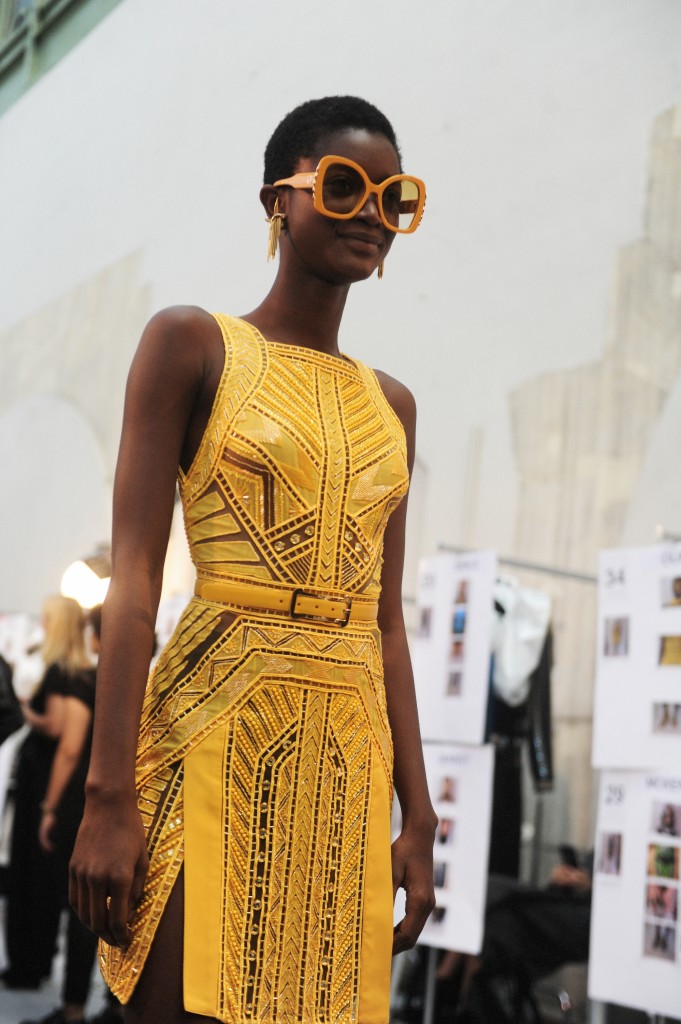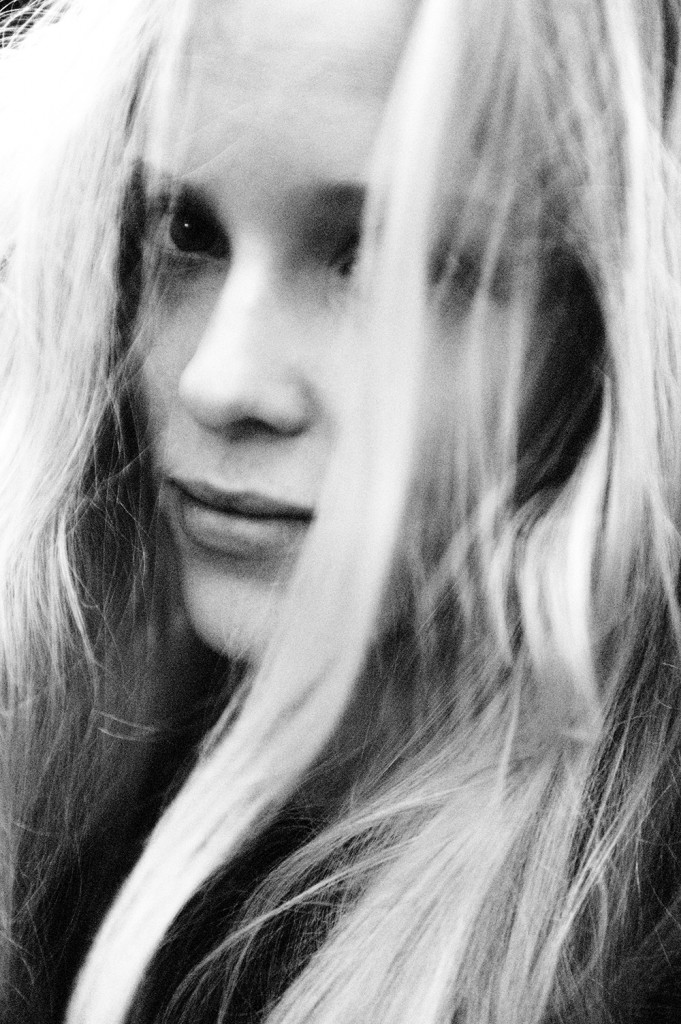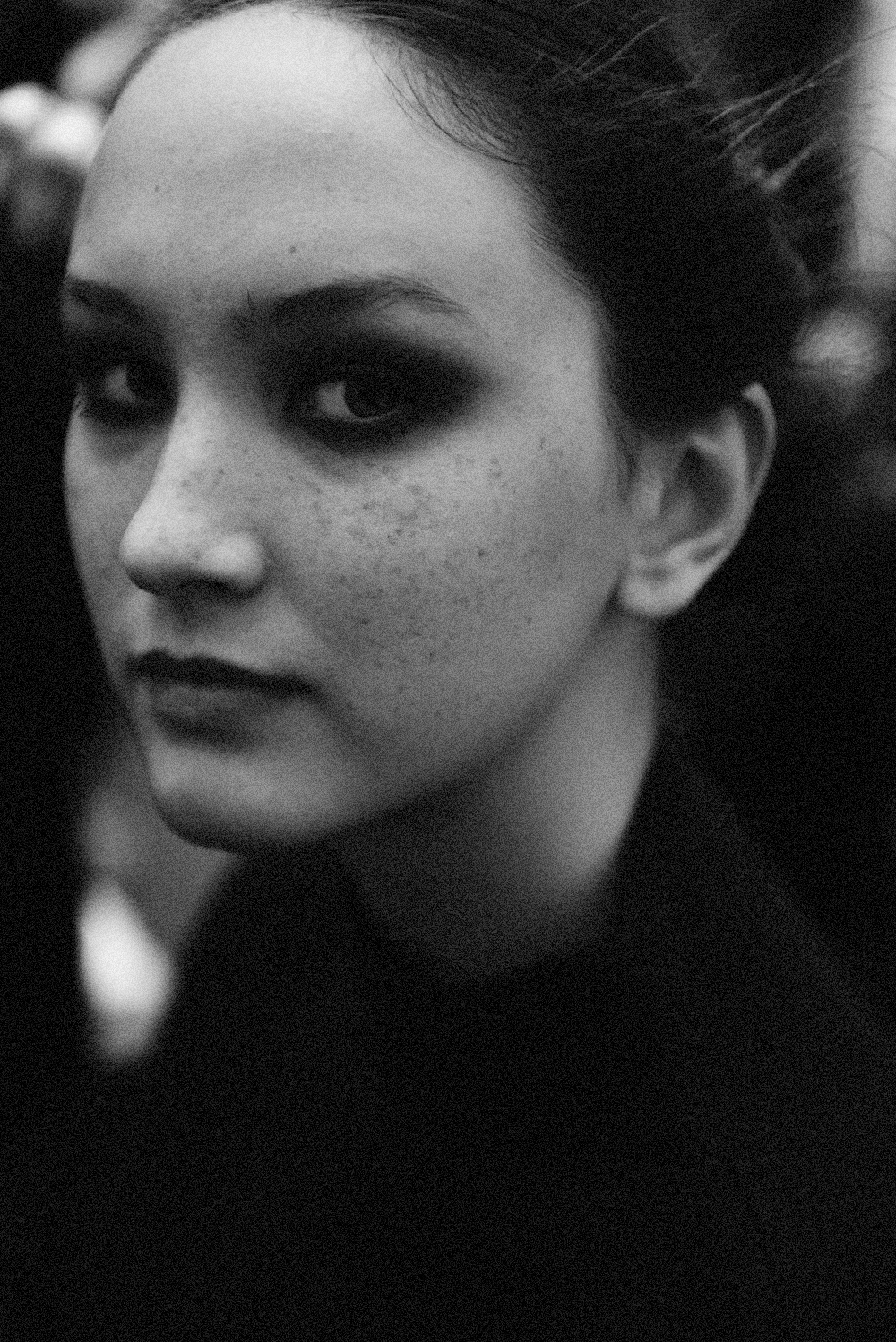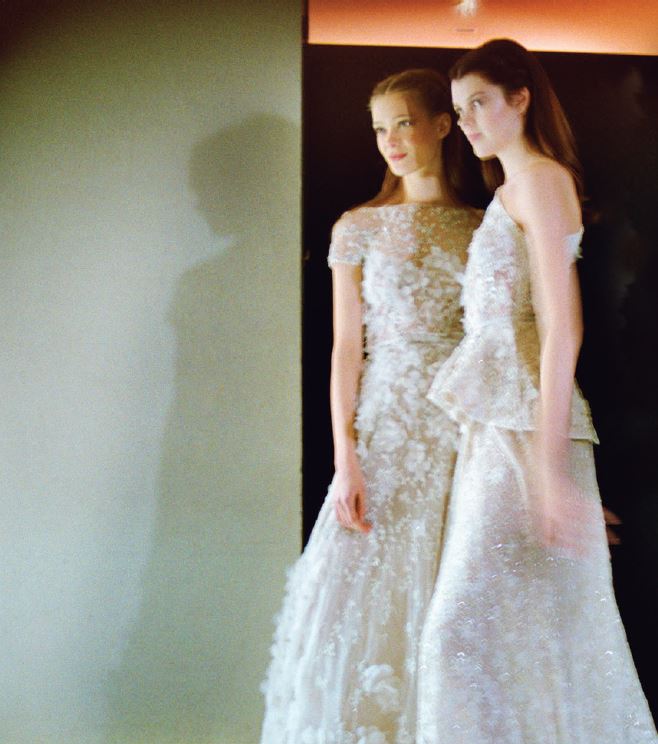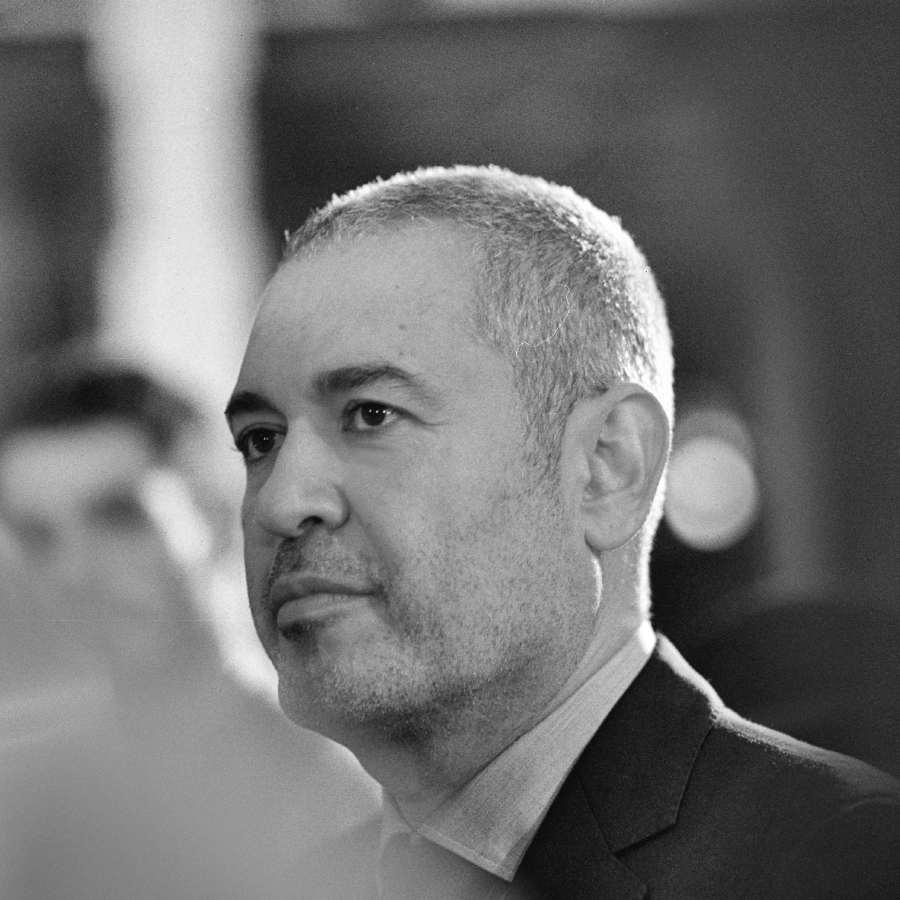
ELIE SAAB ON LEBANON
By Crash redaction
HE IS THE MASTER OF THE EVENING GOWN, THE GURU OF GLAMOR. ELIE SAAB ALWAYS WANTED TO GIVE WOMEN THE GIFT OF BEAUTY. AND IT’S WITH A STROKE OF GENIUS THAT HE COMPOSES HIS FINE AND FEMININE SILHOUETTE FOR RUNWAYS AND CITY STREETS ALIKE. IN THE COMPANYOF THE MAESTRO HIMSELF, WE TAKE A LOOK BACK ON HIS EXCEPTIONAL CAREER, RECOGNIZED FOR NEARLY A DECADE BY AN OFFICIAL SPOT AMONG THE ULTRA-ELITE COMPANY ON PARIS’S COUTURE CALENDAR.
You began your career at a very young age… how did you get started in fashion?
My career did in fact being very early. I opened my first atelier and presented my first collection at 18. and things have worked out great ever since!
Launching your first collection at 18… that’s extraordinary!
It may seem astonishing to you, but it was already a long time in the making for me. I started following fashion when i was still very little, so 18 was just the right time for me. already at 9 i started noticing women, their style, their silhouettes. I cut fabric for my sister’s dresses. I paid attention to how clothes were put together… my family had absolutely no connection to the fashion industry. so i was drawn to it mostly by instinct. In a way, i’ve been a visionary since childhood. It’s my unique vision that has allowed me to serve women, to make them beautiful and feminine.
So you started your fashion career in beirut?
In beirut, right in the middle of the civil war. all around me i saw women who were exhausted, withered down by how hard life was at the time. On some unconscious level, i started wondering how i could make them more beautiful. In contrast to the brutal reality of the war, i dreamt up ways to make them more chic, more fashionable, more carefree.
And you were the first designer in beirut?
Beirut was already well known for its traditional textile and clothing makers. But i was certainly the first one to position myself as a designer, with the usual number of collections, a standard schedule, and special models. My first collection really opened up all the doors to the entire middle east for me. It was a success, everyone loved my products. Things worked that way for about 15 years, up until the 90s when i started to feel a little burnt out. That’s when i had to come up with something new to take my career and my fashion house to the next level. I wanted to think bigger. so i started showing my collections in london, and i ended up staying there for three years. Then i moved to rome, where i worked on ready-to-wear.
How did europe respond to your work?
I felt great in rome. My clients kept up with my work. at first, people in europe were surprised that someone could come from the middle east with a reputation already in hand. But my clientele was already there: many women had known about my work for years and they wanted to see it in europe. For me the challenge was more along the lines of getting more publicity.
How did you end up in paris?
I started coming on my own during the fashion weeks. I showed a few collections in that context. Then i was invited to be a couture member for two years. In 2005, at the same time i launched my ready-to-wear line on the runways, i became a correspondent member. Now i’m on the official couture calendar in paris.
Did you have to adapt your work for france? Or did you decide to keep your own style?
Clients in europe are probably a bit different than clients in the middle east, but we’re living at a time when cultural boundaries have largely been transcended. When i first came to europe in 1997, this phenomenon was still in its beginnings. Mindsets were only just starting to change. But my goal has always been to make products that women everywhere will like, no matter what culture or background they’re from. There aren’t really any standards or styles specific to this or that nation anymore.
And what about the american market… is it important for you?
My brand is doing very well in the us. at the same time i moved to rome, we also opened an office with a showroom in los angeles. That’s when we started dressing celebrities.
How did you break into hollywood?
Ever since i started out, i wanted to build a strong fashion house that would last and make an impression on people. all the steps along the way came pretty naturally, since it was our product that led us to success. It was always the dresses that opened all the doors for us. and actresses wanted to wear my dresses, since they rely on their image and always need to look their best, especially at key moments like when they’re on the red carpet. But when i started dressing celebrities, in the early 2000s, the red carpet didn’t have the same importance as it does today. So we were slightly ahead of the times from that point of view. Our house’s image was built outside
The fashion world and without ads: it was built with the stars. I think we even opened some eyes at other brands in terms of the power of the red carpet, even though that’s not what we set out to do. The red carpet is much different than the runway: it’s the runway for actual women. Actresses are not runway models. They’re simpler and more real: they’re women of every age, each with her own personality, her own background… i totally understand their desire to be beautiful and glamorous. That’s probably what all my clients have in common, whether they’re actresses or not.
How do you split your time between beirut, paris, and geneva?
My family house is in geneva, and that’s where my kids go to school. Personally, i move around a lot: paris, milan, new york… right now the situation in beirut is pretty tense. There is still a lot of conflict. It’s hard, but life goes on. I live with it. The lebanese are a very positive people. We’re all trying to better ourselves. I know beirut from so many different angles, and i love that city. People thought i might leave the middle east forever, but a large portion of my activity is still based there and it’s going to stay there. My haute couture atelier is there. I’ve got 200 people there. They’re my responsibility and i’m committed to them. as long as i have some form of activity there, it’s a form of resistance. I’m extremely proud to represent that aspect of beirut: its glamour and fantasy.
You’re also interested in design…
I like all the arts, yes. It’s a passion for me. sometimes i even fantasize about being an architect! (laughs) i design custom furniture by request. I’m looking into doing a furniture line. There’s so much out there to do. Ideas are always crystallizing in my head.
And your brand is releasing a new perfume?
Yes, in february. There’s a great story behind that perfume. I’ve wanted to do a perfume for years. Finally putting it together was a very emotional experience for me, and it took two years of hard work to do it. We partnered with some very exceptional people. Working with them was a very rewarding experience. I never just wait for a finished product to show up on my desk. I take an active part in every decision. With this perfume, we wanted more than a simple marketing tool. We wanted a product made with a lot of care and feeling. We wanted a strong product with a lot of emotion behind it.






